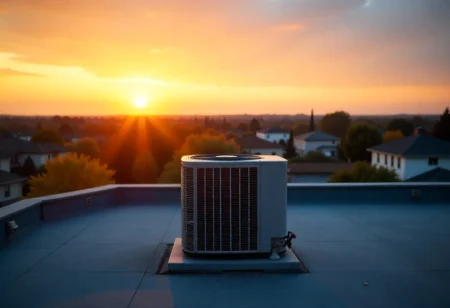In a world where energy conservation and environmental consciousness are becoming increasingly crucial, the role of home appliances in shaping our ecological footprint cannot be understated. This article delves into the realm of major appliances, exploring the significance of energy efficiency, the impact of energy-efficient appliances, and how labels play a pivotal role in guiding consumers toward making environmentally conscious choices. Join us on this journey to unravel the secrets behind energy-efficient living.
Harnessing Efficiency: The Power of Energy-Efficient Appliances
What Makes an Appliance Energy Efficient?
Some home appliances use more energy than others. The term “energy efficiency” refers to the ability of an appliance to perform its function while using the least amount of energy possible. In the market flooded with a plethora of options, understanding what makes an appliance energy efficient is paramount.
Consider a refrigerator, for instance. This essential home appliance can vary significantly in terms of energy consumption. Newer models often come with the Energy Star label, indicating that they meet specific energy efficiency standards set by the Department of Energy. These labels provide consumers with valuable information on the estimated annual energy consumption, allowing them to make informed decisions.
Decoding the Energy Efficiency Label
The Energy Star label is not just a fancy sticker; it’s a beacon guiding consumers toward appliances that are designed to save energy and, consequently, reduce utility bills. But what do these labels really mean? Let’s break it down.
The label typically shows the annual energy usage of an appliance and sometimes includes a scale that allows consumers to compare the energy efficiency of different models. When in the market for a new appliance, look for the Energy Star logo—a symbol of compliance with stringent energy efficiency standards.
The Economic Impact: Saving Energy, Saving Money
Investing in energy-efficient appliances isn’t just a choice for the environmentally conscious; it’s a smart financial decision too. While the upfront purchase price of these appliances might be slightly higher, the long-term savings on energy bills can be substantial. The initial investment pays off in the form of reduced energy consumption, resulting in lower monthly utility bills.
The Energy-Efficient Odyssey: Navigating Appliance Choices
Refrigerators: Chilling Responsibly
Refrigerators are a staple in every household, but their energy consumption can vary widely. When shopping for a refrigerator, consider factors such as size, design, and additional features like water and ice dispensers. Newer models often come equipped with advanced technologies that not only enhance performance but also contribute to energy savings.
Choosing a refrigerator with the Energy Star label ensures that it meets or exceeds the energy efficiency standards set by the Department of Energy. These appliances often use advanced insulation and compressor technologies, resulting in less energy consumption without compromising functionality.
Dishwashers: Cleaning Up with Efficiency
Dishwashers have improved a lot in using less energy. Modern models not only clean dishes effectively but also do so with minimal energy consumption. When selecting a dishwasher, look for features such as multiple wash cycle options, load sensors, and the Energy Star label.
Energy-efficient dishwashers not only save on water but also use less energy per wash cycle. Additionally, they often come with features like delayed start and smart sensors that optimize energy usage based on the load, making them an ideal choice for the environmentally conscious consumer.
Freezers: Preserving Energy, Preserving Food
Freezers play a crucial role in preserving food, but their energy consumption can vary based on factors like size, design, and age. Upgrading to an energy-efficient freezer can contribute significantly to energy savings.
Look for freezers with the Energy Star label, as they are designed to meet strict energy efficiency standards. These models often incorporate features like improved insulation, efficient compressors, and advanced temperature controls, ensuring optimal preservation while minimizing energy use.
The Future is Smart: Embracing Smart Appliances
Smart Appliances: The Intersection of Convenience and Efficiency
In the era of smart technology, appliances have taken a leap into the future. Smart appliances not only offer convenience and connectivity but can also contribute to energy savings. From refrigerators with built-in energy management systems to dishwashers that optimize water and energy usage based on load, these appliances are redefining the landscape of energy efficiency.
When considering smart appliances, evaluate features such as programmable settings, remote monitoring, and energy-saving modes. Investing in these technologically advanced appliances not only aligns with the quest for efficiency but also adds a layer of convenience to your daily life.
Conclusion: A Greener Tomorrow Starts at Home
In conclusion, the journey toward energy efficiency begins with the choices we make regarding our home appliances. From refrigerators to dishwashers and freezers, every decision plays a part in shaping our energy consumption and environmental impact. The Energy Star label, backed by the Department of Energy, serves as a guide, empowering consumers to make informed choices for a greener tomorrow.
As we navigate the landscape of major appliances, let’s embrace the power of energy efficiency. It’s not just about saving energy; it’s about saving money, reducing our carbon footprint, and collectively contributing to a sustainable future. So, the next time you’re in the market for a new appliance, ask yourself: How much energy does it really use? Your choices today pave the way for a more energy-efficient and environmentally conscious tomorrow. Choose wisely, live efficiently, and be a part of the solution for a brighter, greener future.
FAQs
How do you determine the energy efficiency of an appliance?
To gauge the energy efficiency of an appliance, examine its energy label. This label, often featuring the Energy Star logo, provides vital information on energy consumption and efficiency ratings. The lower the energy consumption and the higher the efficiency rating, the more energy-efficient the appliance is. This helps consumers make informed choices, considering not just the initial purchase cost but also potential long-term savings on energy bills.
Why is energy efficiency an important consideration in buying a major appliance?
Energy efficiency is crucial when purchasing major appliances for several reasons. Firstly, it directly impacts energy bills, with energy-efficient appliances translating to substantial savings over time. Secondly, these appliances often bear the Energy Star label, meeting or exceeding set efficiency standards. By choosing energy-efficient models, consumers contribute to environmental preservation, reduce energy waste, and support initiatives by organizations like the Environmental Protection Agency and the U.S. Department of Energy.
What determines if an appliance is energy efficient?
An appliance’s energy efficiency is determined by factors such as its energy label, efficiency ratings, and compliance with standards like Energy Star. Look for labels that showcase the estimated annual energy consumption and the appliance’s efficiency. The use of advanced technologies, renewable energy sources, and adherence to energy efficiency standards set by regulatory bodies are key indicators of whether an appliance is energy efficient.
How do you choose energy-efficient appliances?
When selecting energy-efficient appliances, focus on those labeled with Energy Star certification and energy efficiency ratings. Consider the estimated annual energy consumption, looking for lower values for optimal efficiency. Assess the appliance’s features, like programmable settings and energy-saving modes, to maximize energy savings. Additionally, weigh the initial purchase cost against the long-term benefits of reduced energy bills, ultimately making a sustainable and cost-effective choice.
How to choose electric appliances?
To choose electric appliances wisely, prioritize energy efficiency. Look for the Energy Star label and check the energy efficiency ratings. Consider features that enhance efficiency, such as programmable settings and energy-saving modes. Evaluate the appliance’s impact on energy consumption, aiming for lower usage and reduced electricity bills. This ensures not only optimal performance but also a conscious contribution to energy conservation and a more sustainable future.
What are energy-efficient appliances?
Energy-efficient appliances are those designed to use less energy while maintaining optimal performance. They often bear the Energy Star label, indicating compliance with stringent energy efficiency standards. These appliances contribute to reduced energy consumption, resulting in lower energy bills. The use of advanced technologies, efficient models, and adherence to energy efficiency ratings distinguishes them from their less efficient counterparts, making them a sustainable and cost-effective choice for environmentally conscious consumers.
How do you calculate the energy efficiency of an appliance?
Calculate the energy efficiency of an appliance by examining its energy label. This label provides information on the estimated annual energy consumption and efficiency ratings. Lower energy consumption and higher efficiency ratings indicate a more energy-efficient appliance. Additionally, consider factors such as the use of renewable energy, compliance with energy efficiency standards, and the presence of the Energy Star logo as indicators of overall energy efficiency.
Why is it important to consider energy efficiency when shopping for appliances?
Considering energy efficiency while shopping for appliances is crucial for various reasons. It directly impacts energy bills, with energy-efficient appliances leading to significant long-term savings. These appliances, often carrying the Energy Star label, align with established efficiency standards. By prioritizing energy efficiency, consumers contribute to environmental protection, reduce energy waste, and support initiatives aimed at creating a more sustainable and energy-conscious future. Making informed choices based on efficiency labels ensures a balance between optimal performance and responsible energy consumption.





